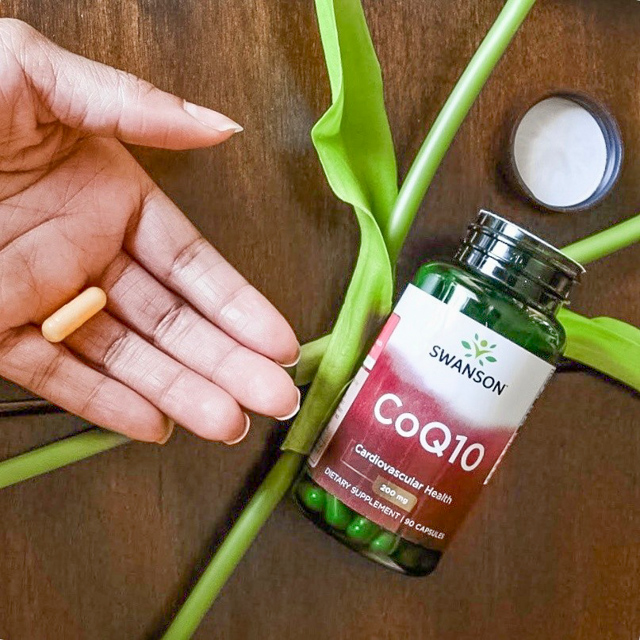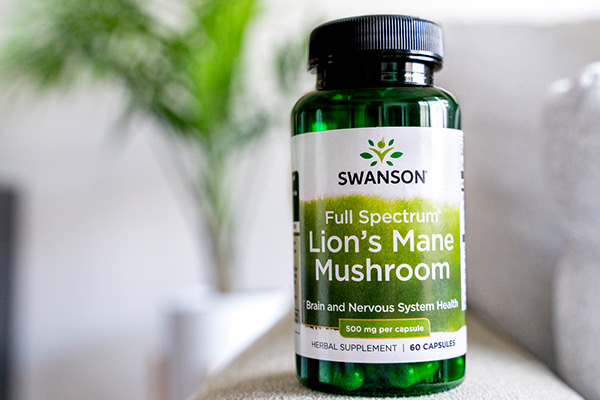What is Pycnogenol?
Pycnogenol is a traditional pine bark extract taken by many people from different walks of life and for almost as many different reasons. While pine bark extracts have been used by herbalists for thousands of years,1 this compound of plant-based chemicals may have only recently caught your attention. So, what is Pycnogenol?
Pycnogenol is a compound derived from healthful phenolic elements found in the bark of French maritime (located near the sea) pine trees, although its active ingredients may also be found in other plant sources, such as witch hazel bark, grape seeds or even the skins of peanuts.2
Pycnogenol supplements generally include capsules, although other forms are also available, such as topical creams.
What is Pycnogenol Used For?
Pycnogenol has been studied in a large variety of research trials, revealing an array of health benefits.1 Some of the most popular uses for Pycnogenol include:
- Heart health, including supporting healthy blood lipid and blood glucose levels
- Respiratory health
- Skin health
- Women's health, especially hormone levels during the menopausal transition
- Cognitive health and attention, notably in students and working adults
- Vascular health, particularly relating to the eyes
- Antioxidant defense
- Joint health, specifically knee function
Pycnogenol Benefits Cardiovascular
Pycnogenol has been shown in numerous clinical trials to offer benefits to cardiovascular health. For example, taking Pycnogenol has been associated with supporting healthy blood lipid levels which are already within the normal range.3
In addition, Pycnogenol has been studied for its positive effects on healthy blood flow, largely attributed to its powerful antioxidant properties which are known to protect against oxidative stress.4 This benefit has also been linked to supporting healthy circulation, such as to the legs.2
Pycnogenol Benefits Respiratory
Studies in both adults and children have found that Pycnogenol may support healthy respiratory function, particularly during certain seasons when respiratory challenges are more common.2
After clinical studies conducted in 2009 and again in 2018, it was suggested by researchers that Pycnogenol is better able to support respiratory health when taken before the onset of seasonal challenges in order to allow time for its full effect.5
Pycnogenol Benefits Skin
A study from 2012 indicates that Pycnogenol may benefit the hydration and elasticity of skin by promoting the body’s natural production of collagen and hyaluronic acid.6 Further research in 2017 suggested that the antioxidant properties in Pycnogenol offer protection against free radicals, which can promote healthier looking skin in addition to supporting overall tissue health.7
Other Pycnogenol Benefits
Pycnogenol was shown in multiple studies from 2006 to deliver cognitive benefits, such as improved focus.6 Additionally, older adults have been shown to benefit from the cognitive support offered by antioxidant defense against free radicals and oxidative stress. Pycnogenol is known to possess potent antioxidant properties and has been linked to promoting and helping to maintain positive cognitive health markers such as memory, focus and executive functioning through this specific characteristic in various studies stretching back more than 20 years.1
Another health benefit offered by Pycnogenol is its ability to promote vascular health, particularly relating to the capillaries of the eyes. Clinical studies conducted in multiple countries beginning in the 1960s have linked Pycnogenol to increased vascular integrity, a benefit which may be especially helpful to those with certain blood glucose concerns.8
Recently, Pycnogenol has gained attention for its support of healthy hormone levels during the menopausal transition. Studies are finding that supplementation with Pycnogenol may offer comfort during perimenopause and menopause by promoting a positive mood and easing anxious feelings, improving fatigue, soothing discomfort and even helping to reduce night sweats and other sleep disturbances9. Another promising finding for postmenopausal women is the potential of Pycnogenol to increase circulation in the scalp to support increased hair density.
Which Foods Are High in Pycnogenol?
The beneficial bioflavonoids found in Pycnogenol can be found in a number of popular food sources such as:
Pycnogenol Side Effects
Pycnogenol is certified Generally Recognized as Safe in the United States, having first been patented in 1985.11 This is true for both oral and topical Pycnogenol supplements.12 It’s always a good practice to speak with your doctor before beginning any new supplement regimen, particularly if you are:
- Pregnant
- Breastfeeding
- Planning to have surgery
- Have other health concerns
How to Take Pycnogenol
Pycnogenol supplements are available in a variety of strengths, most often in capsule form for oral administration. It’s also possible to use topical skin creams which feature Pycnogenol for skin health benefits.
Whichever form of Pycnogenol you choose to use, the benefits of this science-backed compound are as powerful as they are diverse. Discover for yourself the many ways you can enjoy enhanced health and wellness with Pycnogenol!
Always serving our customers,
Your friends at Swanson
*These statements have not been evaluated by the Food and Drug Administration. These products are not intended to diagnose, treat, cure, or prevent any disease.
Sources
1. Assessing the Efficacy of Pycnogenol. Frontiers in Pharmacology. Read source
2. Pycnogenol. WebMD. Read source
3. The Impact of Pycnogenol Supplementation. Phytotherapy Research February 2019. Read source
4. Effects of Pycnogenol on Endothelial Function. National Library of Medicine. Read source
5. Study Evaluating Pycnogenol for Improving Allergic Symptoms. National Library of Medicine. Read source
6. What is Pycnogenol and Why Do People Use It? HealthLine. Read source
7. Pycnogenol: A Miracle Component in Reducing Ageing and Skin Disorders. Journal of Clinical and Experimental Dermatology Research. Read source
8. Pycnogenol for Diabetic Retinopathy. National Library of Medicine. Read source
9. Supplementation with Pycnogenol® improves signs and symptoms of menopausal transition. Panminerva Medicine. Read source
10. What Are the Benefits of Pycnogenol? SFGate. Read source
11. Pycnogenol. American Botanical Council. Read source
12. Maritime Pine. MedlinePlus. Read source



